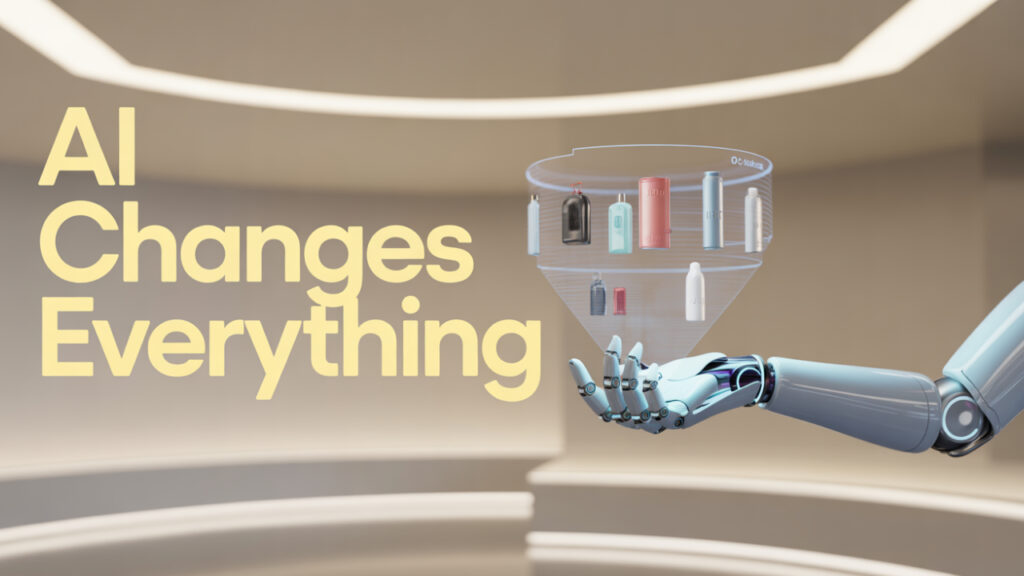Best AI Tools for Developers in 2025 – Complete Guide
Introduction
In 2025, artificial intelligence is not just an accessory in software development—it’s becoming an essential part of how code is written, tested, reviewed, and deployed. Developers around the world are leveraging AI-powered tools to automate repetitive tasks, increase productivity, reduce bugs, and build smarter applications faster than ever.
This shift is not limited to large tech companies. Freelancers, indie developers, startups, and enterprise teams are all integrating AI into their workflows. From writing code to reviewing it, AI tools are saving hundreds of hours and helping developers stay ahead in an increasingly competitive industry.
In this article, we provide a comprehensive breakdown of the best AI tools for developers in 2025. Each tool listed here has been selected based on usability, features, community feedback, pricing, and relevance to modern software development.
Why Developers Are Turning to AI Tools
Before diving into the tools themselves, let’s understand the core reasons why AI has become a central part of the modern development workflow:
Faster Code Writing: Tools like GitHub Copilot and Codeium help developers write entire functions, modules, or boilerplate code with minimal effort.
Error Reduction: AI systems assist in identifying bugs and vulnerabilities earlier in the development cycle.
Improved Code Quality: Suggestions from AI tools often follow industry best practices, helping developers write cleaner, more maintainable code.
Time Efficiency: Automating repetitive tasks like writing documentation or test cases helps developers focus on critical logic and design.
Enhanced Learning: Junior developers can understand complex code or libraries faster through AI explanations and contextual recommendations.
Better Collaboration: Some AI tools integrate with team workflows to provide real-time suggestions, project summaries, and even generate commit messages or PR descriptions.
Top 10 AI Tools for Developers in 2025
Below is a carefully curated list of AI tools that are making a significant impact in 2025.
1. GitHub Copilot X
Category: AI Code Assistant
Powered by: OpenAI (GPT-4)
Best For: Developers using VS Code, Neovim, or JetBrains IDEs
GitHub Copilot X is the latest evolution of GitHub’s AI assistant. Unlike earlier versions, Copilot X uses the power of GPT-4 and offers deeper integrations with development environments and GitHub workflows.
Key Features:
Generates entire functions based on short comments
Auto-completes code in real time
Converts natural language into code
Explains code in plain English
Suggests unit tests automatically
Creates pull request summaries
Pros:
Seamless integration with GitHub and IDEs
Supports dozens of languages and frameworks
Context-aware suggestions improve with time
Cons:
Requires internet connection
Performance may vary depending on code complexity
Pricing:
$10/month for individuals
$19/month for teams
2. Amazon CodeWhisperer
Category: AI Code Generator
Best For: Cloud developers and AWS users
Amazon CodeWhisperer is Amazon’s answer to Copilot, with a strong focus on AWS services and cloud-based development.
Key Features:
Provides AI-generated code tailored for AWS SDKs
Supports Python, Java, JavaScript, and more
Includes built-in security scans for vulnerabilities
Integrated into AWS Cloud9 and other IDEs
Pros:
Ideal for developing AWS Lambda functions
Prioritizes security in code suggestions
Free for individual developers
Cons:
Less polished outside the AWS ecosystem
Pricing:
Free for individuals
Enterprise pricing available for organizations
3. Tabnine
Category: AI Autocomplete Tool
Best For: Developers who want privacy-focused autocomplete
Tabnine has built a reputation as a privacy-conscious alternative to Copilot. It offers AI-driven autocompletion that can be trained on your own codebase.
Key Features:
Real-time AI completions across 20+ programming languages
Supports local and team-based models
Can be trained on private repositories
Integrates with VS Code, JetBrains, Atom, and more
Pros:
Works offline with private models
GDPR-compliant
Ideal for enterprise and security-sensitive environments
Cons:
May not be as powerful as GPT-4-based tools
Pricing:
Free plan available
Pro plans start at $12/month
4. Codeium
Category: Code Autocomplete + Chat Assistant
Best For: Developers looking for a free, full-featured Copilot alternative
Codeium has gained popularity by offering fast, intelligent code suggestions completely free of cost.
Key Features:
Supports over 70 programming languages
Code search and in-line documentation
Chat-based code explanations (similar to ChatGPT)
IDE integrations for VS Code, IntelliJ, Jupyter
Pros:
Completely free
Excellent accuracy for common use cases
Fast performance and frequent updates
Cons:
May lack enterprise support
Chat responses are less advanced than GPT-4
Pricing:
100% Free
5. Sourcery
Category: Python Code Refactoring
Best For: Python developers focused on writing clean, efficient code
Sourcery focuses on improving Python code by automatically suggesting clean and efficient alternatives to existing logic.
Key Features:
Identifies code smells and anti-patterns
Offers real-time suggestions as you type
Suggests function extractions and refactors
GitHub & GitLab integration for code reviews
Pros:
Saves time in code reviews
Improves maintainability of Python codebases
Lightweight and beginner-friendly
Cons:
Python-only support
Pricing:
Free plan available
Pro version starts at $12/month
6. Cody by Sourcegraph
Category: AI Code Navigator
Best For: Large codebases, monorepos, and enterprise teams
Cody is built to help developers understand and navigate large and complex codebases efficiently.
Key Features:
AI-powered answers to code-related questions
Deep context from the entire codebase
Fast search across files, functions, and classes
Integrates with Sourcegraph and multiple IDEs
Pros:
Saves time navigating unfamiliar code
Great for onboarding and legacy code
Cons:
Requires code indexing, which can be heavy
Best used with large teams
Pricing:
Free for individuals
Enterprise pricing available
7. BlackBox AI
Category: Code Snippet Generator & Search
Best For: Quickly finding and adapting code from public repositories
BlackBox AI helps developers search through millions of code snippets and generate new ones on demand.
Key Features:
Converts plain English to code
Searches code from repositories like GitHub
Offers speech-to-code conversion
Works as a browser extension or IDE plugin
Pros:
Speeds up repetitive coding tasks
Ideal for prototyping and research
Cons:
May return outdated code if not verified
Free plan is limited
Pricing:
Free plan available
Premium starts at $8/month
8. AskCodi
Category: Natural Language to Code Generator
Best For: Beginners and SQL-heavy development
AskCodi is designed to help developers generate code using plain English instructions.
Key Features:
Converts natural language into code snippets
Great support for SQL, Python, JavaScript, and more
Plugin support for VS Code
Includes test case and documentation generators
Pros:
Easy to use
Helps in learning code structure and syntax
Cons:
Accuracy depends on query clarity
Pricing:
Free for basic usage
Paid plans start at $9/month
9. DeepCode by Snyk
Category: AI-Powered Code Review
Best For: Security-focused teams and developers
DeepCode uses AI to analyze code for bugs and security issues. Now part of the Snyk ecosystem, it’s especially powerful for secure coding practices.
Key Features:
Real-time static analysis
Detailed explanations of vulnerabilities
Integration with GitHub, GitLab, and Bitbucket
Pros:
Developer-friendly interface
Security-first code analysis
Cons:
More focused on review than code generation
Pricing:
Free for open-source projects
Paid enterprise plans available
10. Mutable.ai
Category: AI-Integrated Development Environment
Best For: Advanced users working on large-scale applications
Mutable.ai is an IDE-enhancing tool designed to reduce manual labor in software projects.
Key Features:
Generates boilerplate code and documentation
One-click code refactoring
Project-aware AI chat assistant
Pros:
Saves hours in writing repetitive code
Focuses on documentation and clarity
Cons:
Less intuitive for beginners
Currently in active development
Pricing:
Free for small projects
Premium starts at $25/month
How to Choose the Right Tool
The best tool depends on your individual or team needs. Here’s a brief checklist to help you decide:
Need advanced AI suggestions? → GitHub Copilot X
Free Copilot alternative? → Codeium
Working with AWS? → CodeWhisperer
Security-focused? → DeepCode by Snyk
Python-only developer? → Sourcery
Want AI to explain legacy code? → Cody
Writing a lot of SQL or CRUD APIs? → AskCodi
Conclusion
AI tools are fundamentally transforming how software is built. From intelligent autocompletion to automated code reviews and project-level understanding, AI assistants have become trusted collaborators for developers across every stage of development.
In 2025, developers who adopt these tools are building faster, cleaner, and more secure applications than ever before. Whether you’re writing code alone or leading a team of engineers, integrating AI into your development workflow can give you a significant advantage.
Experiment with a few tools from this list and discover how much more efficient and effective your coding process can become.



